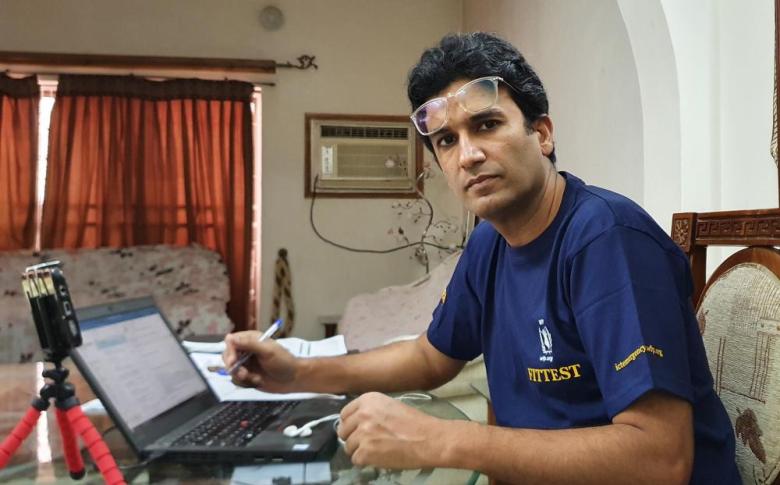WFP FITTEST responds to COVID-19: Khawar in Pakistan

WFP's Fast IT and Telecommunications invention team - FITTEST - deploy all over the world to deliver life-saving communications services. With over a decade of experience, FITTEST's Khawar Ilyas - Emergency Telecommunications Sector (ETS) Coordinator for Nigeria - told us what life was like coordinating an emergency operation in a continent away, after global travel shut down while he was on break at home in Pakistan.
By Elizabeth Millership
Over the phone, Khawar overflows with the characteristic energy and sharp humour he’s been known for in the team since joining FITTEST eight years ago. “Is this going to be like one of those calls where they tell you you’re a ‘lucky candidate’ to win a smartphone…if you take out a big loan?” he quips.
His sunny disposition is a contrast to the circumstances. Khawar is coordinating the World Food Programme (WFP)-led Emergency Telecommunications Sector (ETS) response in Nigeria, a continent away. He’s working remotely from his home in Peshawar, Pakistan — an ancient city nestled in a valley between mountain ranges, close to the border with Afghanistan.
The morning call to prayer echoes across the warm and dusty streets, over the sparse hum of morning traffic and through Khawar’s open window. His current location was never part of the plan — a combination of the pandemic and timing is the reason he’s here and not in Nigeria.
“I travelled home in late March on my planned leave and expected to return in two weeks’ time,” he explains. “The situation suddenly started to turn grim and as I was preparing for my return to Nigeria, flights started getting cancelled and international airports everywhere were closing.”
He feels like one of the lucky ones in the current crisis.
Amid surging new cases, most cities across Pakistan have been in some degree of lockdown for weeks. These are uncertain times. Over 30,000 people across the country are confirmed to have contracted the virus, including hundreds of healthcare workers and frontline staff. Closure of local businesses has brought bustling cities like Peshawar to a standstill. Khawar is staying home to avoid any social contact.
Despite the situation, Khawar remains focused on the job. “To be honest, I don’t always see that much of a difference coordinating the ETS operation from so far away,” he says. Speaking with the unshakeable and confident worldview of a humanitarian with over a decade of emergency response to his name, he says, “the kind of job we are in requires us to respond to any given condition.”
Khawar makes it sound straightforward. He oversees the activities of seven ETS personnel in north east Nigeria who deliver connectivity to thousands of humanitarians responding to the needs of millions affected by violent conflict.
Always mindful of his team on the ground, he says, “being in touch with my mission and staff back in the office helps me to remain focused on what I am needed for and what I can do without being physically present.”
As Khawar puts it, “connectivity has overcome the barrier of being physically available at any given location.” It is what has enabled him to continue coordinating an emergency from nearly 7,000 kilometres away.
It is not lost on Khawar that he now relies entirely on connectivity, a key service that FITTEST and the ETS delivers to others. The pandemic has demonstrated to the world, more clearly than ever, that connectivity is an essential service for those who are fortunate enough to have it.
“More and more in this world, humans — being the social animals they are — they walk into an unfamiliar environment and they look for connectivity before they look for food, water or any other comfort,” Khawar says. “I guess by this thinking, I am in a comfortable situation.”
Indeed, he is home. Later, he will eat iftar with his wife and two children, who he misses deeply when in the field for months at a stretch. He is connected in some way with all those who are important in his life. Ever the measured philosopher, Khawar concludes: “to know what one can do and what is beyond one’s control helps us to remain calm and focused. Let nature take its course.”
Learn more about WFP FITTEST